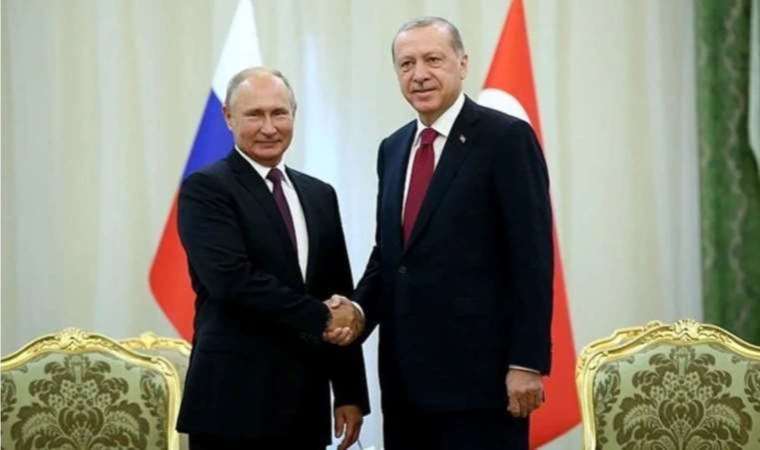Erdogan-Putin Meeting: What's on the Agenda?
President Erdoğan and Russian leader Putin convened in Sochi, Russia's Black Sea coastal city. The primary topics under discussion expected to include the Grain Agreement, Russia's demands, and Turkey-Syria relations.

Following a meeting between Foreign Minister Hakan Fidan and his Russian counterpart Lavrov, AKP President Recep Tayyip Erdoğan and Russian President Vladimir Putin held discussions in Sochi today.
The central focus of this meeting, the first between the two leaders since October 13, 2022, in Astana, Kazakhstan, is anticipated to be the Black Sea Grain Agreement. However, Erdoğan also likely to address the Ukraine conflict and Turkey's relationship with Syria. Additional items on the agenda include the transfer of Russian gas to Europe via Turkey and the status of the Akkuyu nuclear power plant.
MAIN AGENDA: GRAIN DEAL
Russia declared its withdrawal from the "Grain Agreement" following Ukraine's attack in Crimea on July 17.
The Russian Defense Ministry stated, "Russia has suspended its participation in the implementation of agreements on the export of agricultural products through Ukrainian ports."
Subsequently, Russian President Vladimir Putin expressed willingness to return to the Grain Agreement if obligations pertaining to it met.
As an offer mitigate the impact of the Russian-Ukrainian War on global food prices, the United Nations (UN), along with Russia, Turkey, and Ukraine, signed the Black Sea Grain Corridor Agreement in Istanbul on July 22, 2022.
RUSSIA'S DEMANDS
One of Russia's key demands is reinstatement the Agricultural Bank of Russia (Rosselkhozbank) into the SWIFT payment system, from which it removed due to Western sanctions.
UN Secretary-General Antonio Guterres offered to extend the grain export agreement with Ukraine provided that the Russian Agricultural Bank (Rosselkhozbank) reconnected to the SWIFT international payment system.
The aim is to facilitate financial transactions through Rosselkhozbank while ensuring the continued flow of Ukrainian grain through the Black Sea, as stated by UN spokesperson Stephane Dujarric.
As part of the effort to lift the economic embargo, one of Russia's demands is the release of Russian assets and accounts seized abroad.
Putin had appointed trustees to two Western companies in retaliation for confiscation Russian assets under Western sanctions. Dmitry Peskov, the Kremlin spokesperson, stated that these trustee appointments were a response to the "aggressive" actions of Western nations toward Russian assets.
Another demand voiced by Putin is related to the June 5 explosion of the Tolyatti-Odesa ammonia pipeline, which preceded Russia's withdrawal from the "Grain Agreement."
"AZOV BATTALION"
AKP President Recep Tayyip Erdoğan and Ukrainian President Volodymyr Zelenskiy held a meeting in Istanbul, during which the extradition of five members of the Azov Battalion with neo-Nazi ideologies to Ukraine caused tensions in Ankara-Moscow relations.
Peskov responded to Turkey's extradition of Azov Battalion members to Ukraine, alleging that "agreements violated."
"The extradition of Azov members from Turkey to Ukraine constitutes a direct violation for existing agreements. In this case, Ukraine and Turkey violated the terms, and Russia not informed," Peskov remarked, emphasizing that Turkey faced significant pressure. He added, "As a NATO member, Turkey naturally demonstrates it's solidarity with NATO. We all understand this very well."
TURKEY-SYRIA RELATIONS
The Ankara-Damascus relationship deteriorated following the onset of the Syrian Civil War in 2011. Russia has acted as a mediator to mend the broken ties and has proposed a return to the "Adana Memorandum."
After meeting with Foreign Minister Hakan Fidan, Russian Foreign Minister Sergey Lavrov stated, "In our unofficial discussions, we have proposed revisiting the principles of 1998, when the Adana Memorandum was signed. This agreement acknowledged a terrorist threat and called for its elimination, allowing Turkey to send anti-terrorist units to certain Syrian territories with Damascus's approval. This agreement remains in effect and has not rescinded."
Syrian leader Bashar al-Assad has previously asserted that "terrorism in Syria originates from Turkey," holding Ankara responsible for violence in Syria. Assad responded to rumours of a potential meeting with Erdogan, mediated by Russia and Iran, by saying, "Why should Erdogan and I meet? To have a soft drink?"
